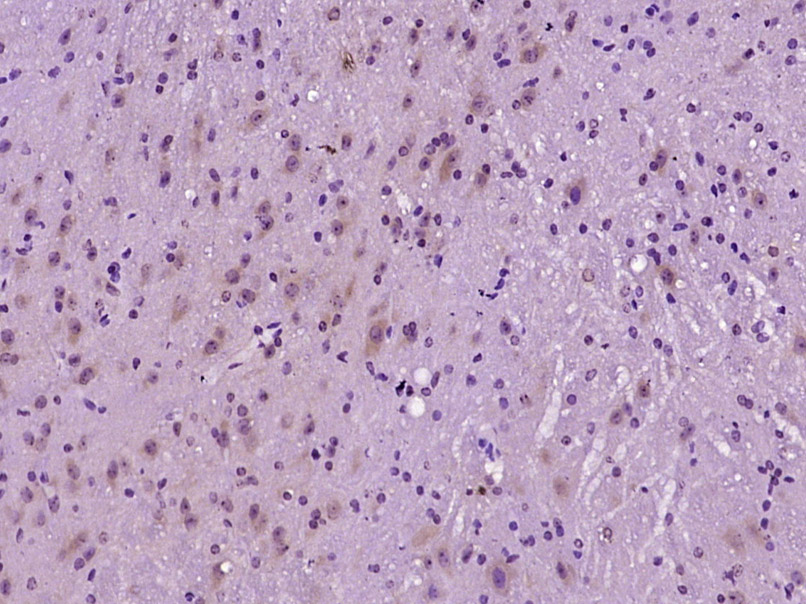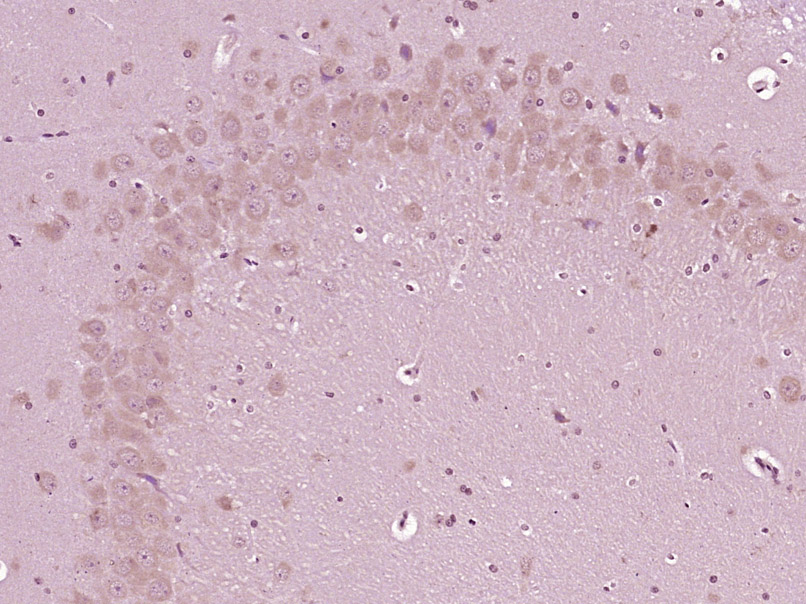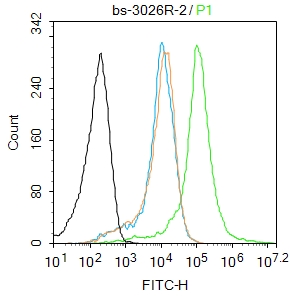
Rabbit Anti-phospho-AMPK beta 1 (Ser108)antibody
PRKAB1(phospho S108); PRKAB1(phospho-S108); AMPK beta 1(Ser108); p-AMPK beta 1(Ser108); p-AMPK beta 1(S108); 5 AMP activated protein kinase subunit beta 1; AMPK; AMPK beta 1 chain; AMPKb; HAMPKb; PRKAB1; 5'-AMP-activated protein kinase subunit beta-1; AMP
View History [Clear]
Details
Product Name phospho-AMPK beta 1 (Ser108) Chinese Name 磷酸化腺苷单磷酸活化蛋白激酶β1抗体 Alias PRKAB1(phospho S108); PRKAB1(phospho-S108); AMPK beta 1(Ser108); p-AMPK beta 1(Ser108); p-AMPK beta 1(S108); 5 AMP activated protein kinase subunit beta 1; AMPK; AMPK beta 1 chain; AMPKb; HAMPKb; PRKAB1; 5'-AMP-activated protein kinase subunit beta-1; AMP-activated protein kinase beta subunit; protein kinase, AMP-activated, noncatalytic, beta-1; AMPK beta -1 chain; 5'-AMP-activated protein kinase beta-1 subunit; AMPKb; AMPK subunit beta-1; AAKB1_RAT; AAKB1_HUMAN; AMPK b1; AMPK-b1. literatures Product Type Phosphorylated anti Research Area Tumour Cell biology immunology Chromatin and nuclear signals Signal transduction Apoptosis transcriptional regulatory factor Kinases and Phosphatases Immunogen Species Rabbit Clonality Polyclonal React Species Mouse, Rat, Applications ELISA=1:5000-10000 IHC-P=1:100-500 IHC-F=1:100-500 Flow-Cyt=2ug/Test IF=1:100-500 (Paraffin sections need antigen repair)
not yet tested in other applications.
optimal dilutions/concentrations should be determined by the end user.Theoretical molecular weight 30kDa Cellular localization The nucleus cytoplasmic Form Liquid Concentration 1mg/ml immunogen KLH conjugated Synthesised phosphopeptide derived from rat AMPK beta 1 around the phosphorylation site of Ser108: TR(p-S)QN Lsotype IgG Purification affinity purified by Protein A Buffer Solution 0.01M TBS(pH7.4) with 1% BSA, 0.03% Proclin300 and 50% Glycerol. Storage Shipped at 4℃. Store at -20 °C for one year. Avoid repeated freeze/thaw cycles. Attention This product as supplied is intended for research use only, not for use in human, therapeutic or diagnostic applications. PubMed PubMed Product Detail The protein encoded by this gene is a regulatory subunit of the AMP-activated protein kinase (AMPK). AMPK is a heterotrimer consisting of an alpha catalytic subunit, and non-catalytic beta and gamma subunits. AMPK is an important energy-sensing enzyme that monitors cellular energy status. In response to cellular metabolic stresses, AMPK is activated, and thus phosphorylates and inactivates acetyl-CoA carboxylase (ACC) and beta-hydroxy beta-methylglutaryl-CoA reductase (HMGCR), key enzymes involved in regulating de novo biosynthesis of fatty acid and cholesterol. This subunit may be a positive regulator of AMPK activity. The myristoylation and phosphorylation of this subunit have been shown to affect the enzyme activity and cellular localization of AMPK. This subunit may also serve as an adaptor molecule mediating the association of the AMPK complex. [provided by RefSeq, Jul 2008].
Function:
Non-catalytic subunit of AMP-activated protein kinase (AMPK), an energy sensor protein kinase that plays a key role in regulating cellular energy metabolism. In response to reduction of intracellular ATP levels, AMPK activates energy-producing pathways and inhibits energy-consuming processes: inhibits protein, carbohydrate and lipid biosynthesis, as well as cell growth and proliferation. AMPK acts via direct phosphorylation of metabolic enzymes, and by longer-term effects via phosphorylation of transcription regulators. Also acts as a regulator of cellular polarity by remodeling the actin cytoskeleton; probably by indirectly activating myosin. Beta non-catalytic subunit acts as a scaffold on which the AMPK complex assembles, via its C-terminus that bridges alpha (PRKAA1 or PRKAA2) and gamma subunits (PRKAG1, PRKAG2 or PRKAG3).
Subunit:
AMPK is a heterotrimer of an alpha catalytic subunit (PRKAA1 or PRKAA2), a beta (PRKAB1 or PRKAB2) and a gamma non-catalytic subunits (PRKAG1, PRKAG2 or PRKAG3). Interacts with FNIP1 and FNIP2.
Tissue Specificity:
Highly expressed in kidney, heart, white adipose tissue, lung and spleen.
Post-translational modifications:
Phosphorylated when associated with the catalytic subunit (PRKAA1 or PRKAA2). Phosphorylated by ULK1; leading to negatively regulate AMPK activity and suggesting the existence of a regulatory feedback loop between ULK1 and AMPK.
Similarity:
Belongs to the 5'-AMP-activated protein kinase beta subunit family.
SWISS:
Q9Y478
Gene ID:
5564
Database links:
Entrez Gene: 5564 Human
Entrez Gene: 19079 Mouse
Omim: 602740 Human
SwissProt: Q9Y478 Human
SwissProt: Q9R078 Mouse
Unigene: 6061 Human
Unigene: 726001 Human
Unigene: 458152 Mouse
Unigene: 3619 Rat
AMPKβ1(AMP-activated Protein Kinase beta-1)(腺苷单磷酸活化蛋白激酶β-1)是一种参与细胞适应能量危机的应激反应酶,AMPK不仅可以在细胞水平作为能量的感受器,还可以通过激素和cell factor,如瘦素、脂联素和ghrelin来参与调节机体的能量消耗和能量摄入.Product Picture
Primary Antibody (green line): Rabbit Anti-ALOX5 antibody (SL3026R)
Dilution: 2μg /10^6 cells;
Isotype Control Antibody (orange line): Rabbit IgG .
Secondary Antibody : Goat anti-rabbit IgG-AF488
Dilution: 1μg /test.
Protocol
The cells were fixed with 70% ethanol (10min at room temperature) and then were incubated in 5%BSA to block non-specific protein-protein interactions for 30 min at room temperature .Cells stained with Primary Antibody for 30 min at room temperature. The secondary antibody used for 40 min at room temperature. Acquisition of 20,000 events was performed.
Bought notes(bought amounts latest0)
No one bought this product
User Comment(Total0User Comment Num)
- No comment





 +86 571 56623320
+86 571 56623320
 +86 18668110335
+86 18668110335

